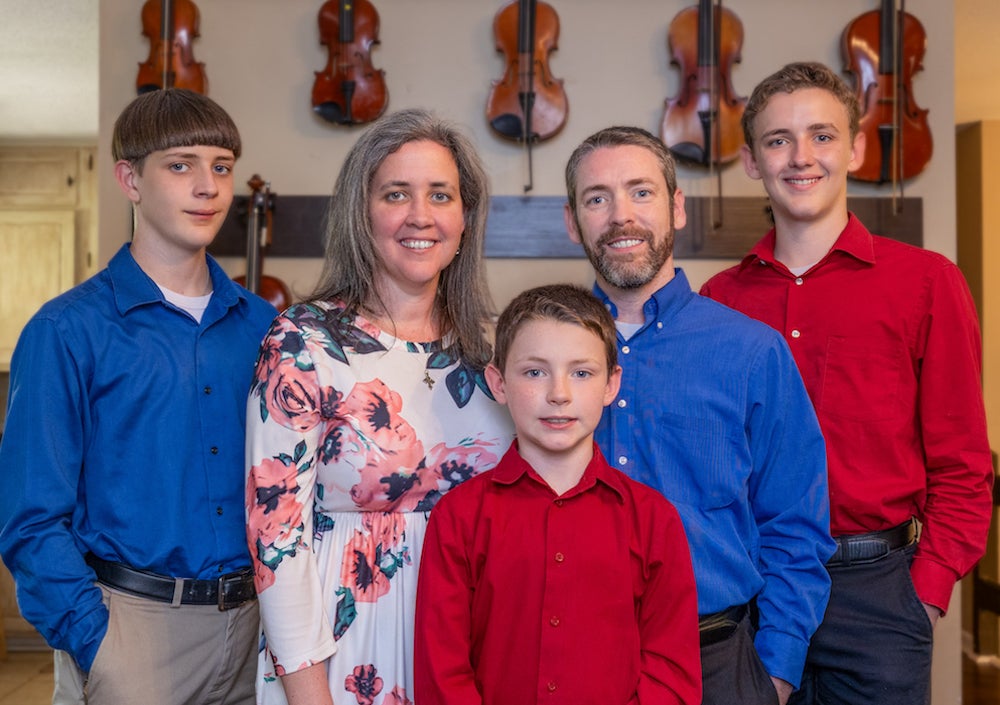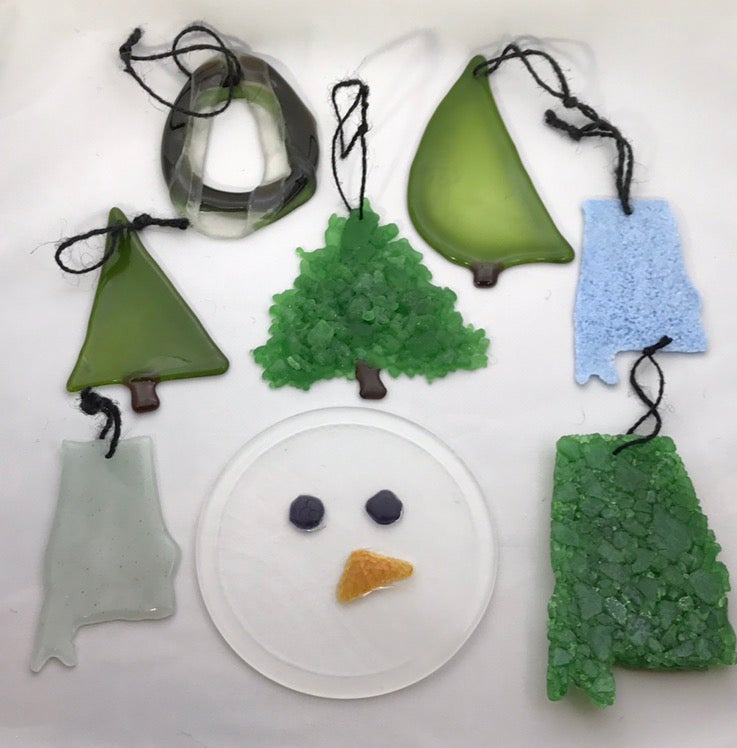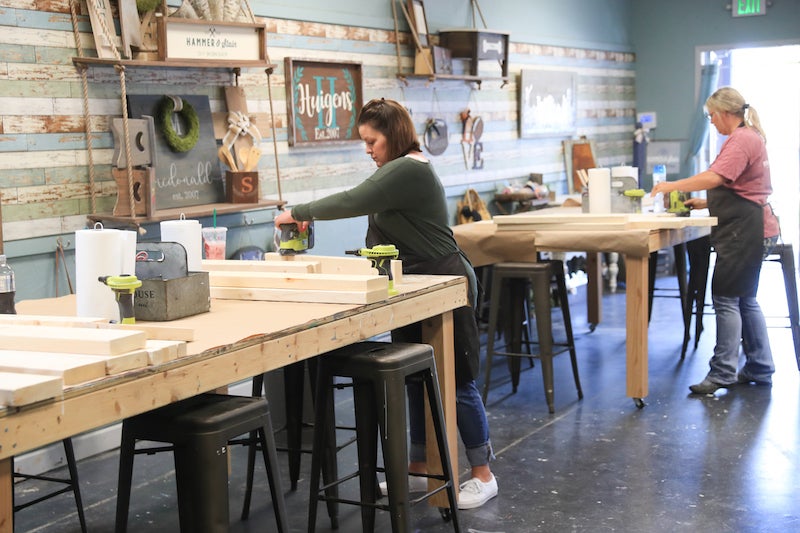By Heather Jones Skaggs
Photos by Blair Ramsey
Opening the doors of STEP Birmingham in Hoover, one’s ears fill with the notes and melodies of kids learning the art of music by the educational movement known as the Suzuki Method.
Dominic, Benedict and Maximilian Lang started their music journey with the Suzuki Method before moving to Birmingham in 2017 and wanted to continue their craft in the same way. The boys’ parents, Justin and Amanda Lang, found STEP Birmingham—Suzuki Talent Education Program in Hoover at 3201 Lorna Road and knew the family had discovered their music school.
Founded by mid-twentieth-century Japanese violinist Dr. Shinichi Suzuki, the Suzuki Method focuses on “character first, ability second.” The Suzuki Method uses listening, imitation and repetition to help people learn to play a musical instrument as if it were their native tongue.
Dr. Suzuki’s philosophy, which he also referred to as “talent education,” focuses on music’s ability to inspire the spirit, nurture a love of music and develop an exemplary character in a child rather than master a musical instrument.
“We were thrilled to find STEP,” Amanda says. “All three of our boys started on violin around age 5. Benedict switched to viola a couple of years ago because he preferred the lower sound register of the instrument.”
Music runs in the Lang family. Justin directs the choir at their church, and Amanda grew up playing the piano. Both also sang in school choirs.
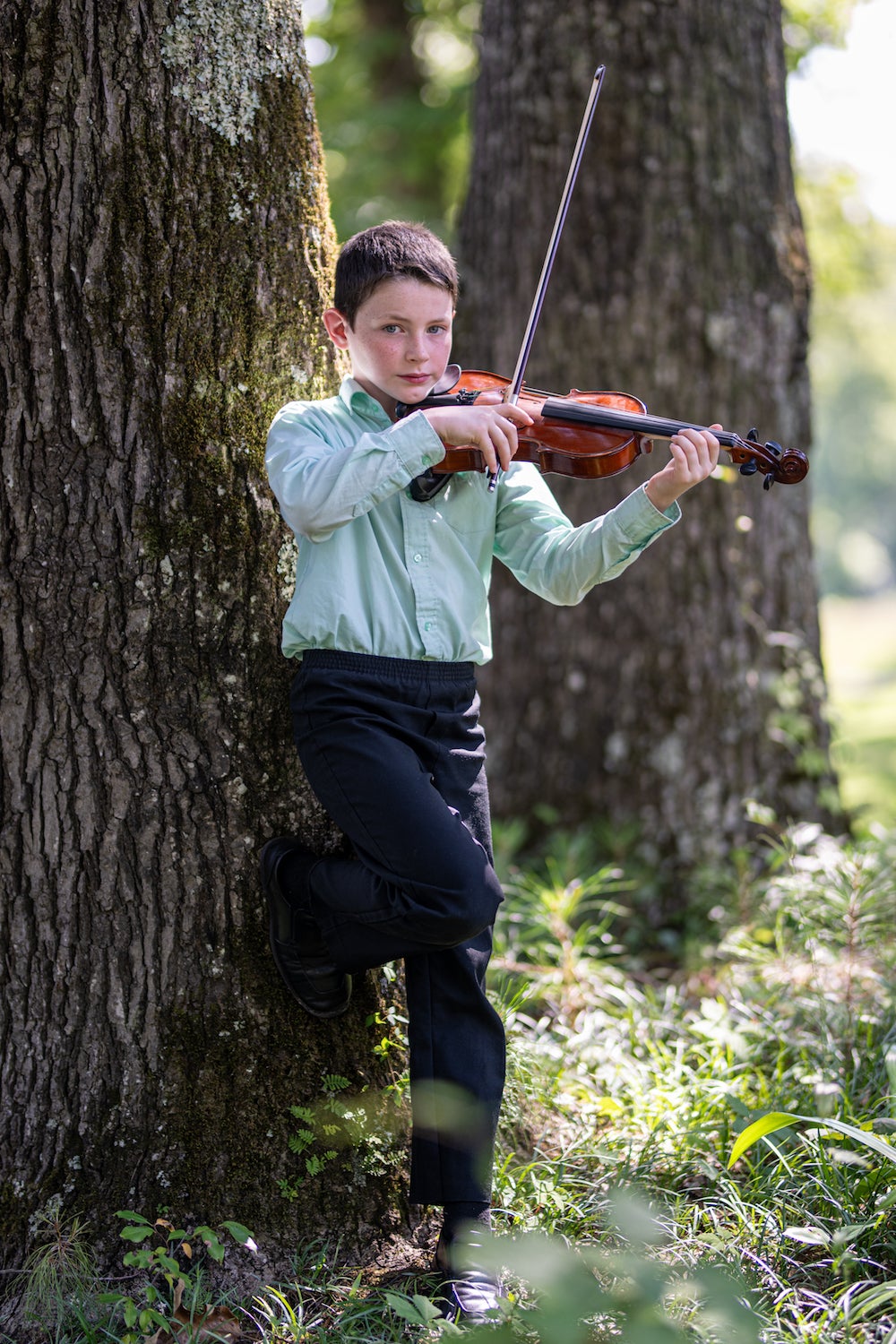
Justin even sang as an adult with the River City Men’s Chorus in Jacksonville, Florida, and at the office in a men’s barbershop quartet that would rehearse during lunch breaks at their work and perform for company Christmas luncheons.
“All the teachers, our private teacher and the group class teachers have been excellent,” Amanda says. “They care about the kids and are very patient with them. When we go to Alabama Symphony Orchestra concerts, they are delighted and inspired to see their teachers performing. They also benefit from the community formed by group classes and recitals because they see other young students progressing on their instruments. Everyone is incredibly encouraging and supportive.”
Around the Lang home, one will find a mandolin, a banjo, a bugle, Irish whistles and a bodhran they tinker with.
“A mandolin is strung the same way as a violin, so that the kids can have quite a bit of fun with that,” Amanda says.
Another aspect of the method is the “Suzuki Triangle.” It describes the equal role the students, teachers and parents play in a child’s learning process. It is a cooperative effort to foster the best support system and learning environment for the student.
Dominic, 16, and his younger brother, Maximilian, 11, love the violin in particular.
“The instrument gives me a chance to create something,” Dominic says. “It’s not like science or math where you have to follow the rules for creating things; you can create whatever you want.”
It is that creative freedom that Dominic shares with STEP.
“Our teachers are so supportive of the students creating and doing things that they might not have done anywhere else, and I love that,” he says.
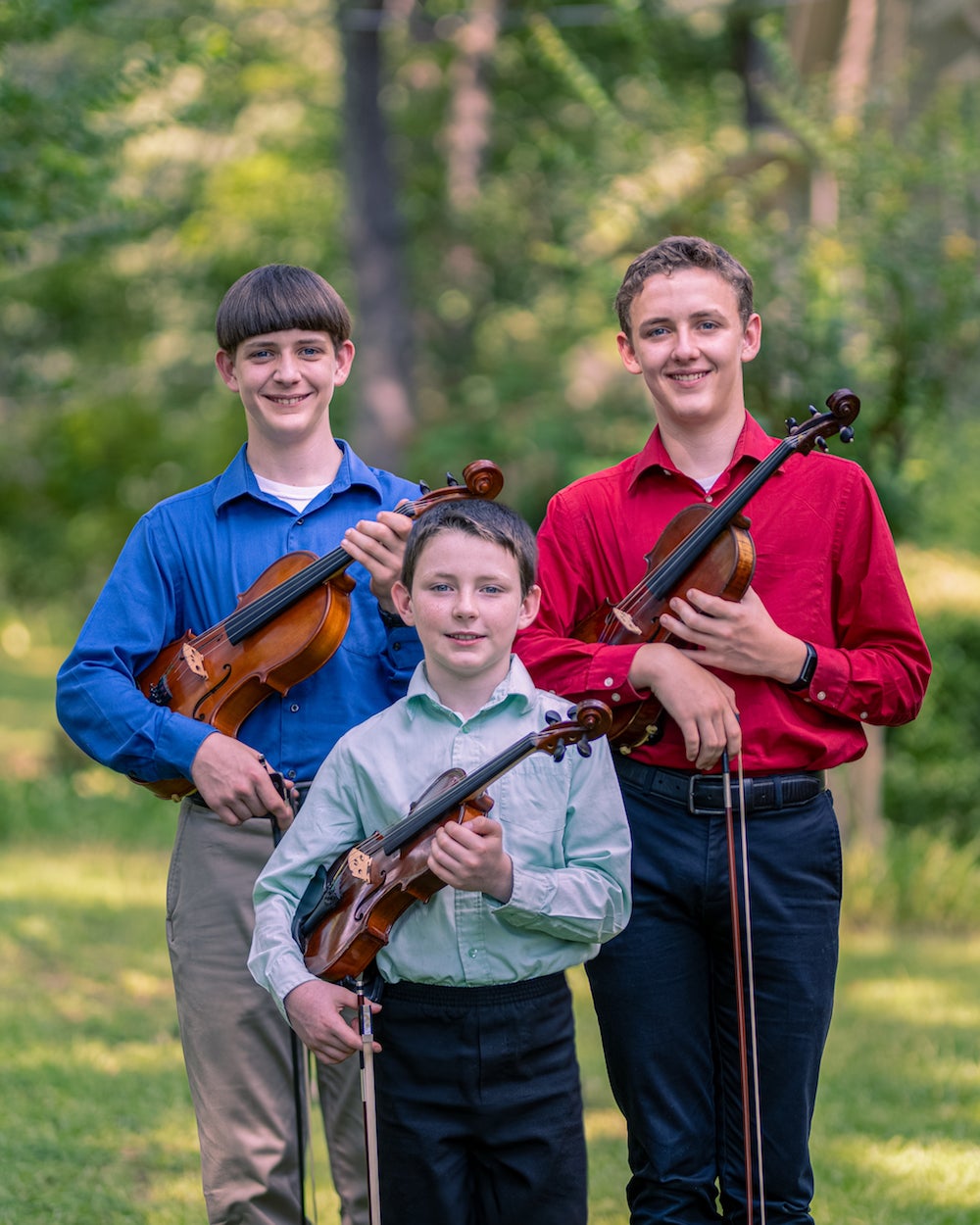
Maximilian says he is drawn to the tone and pitch of the violin, saying, “I especially love the harmonics and high notes with vibrato because you can make the listeners think of different things, however high or low it may be. I also enjoy our group classes because we can review scales we haven’t reviewed before.”
Benedict, 15, loves the viola because of the instrument’s rich tones.
“I enjoy our group class because I am always learning new music that I didn’t know before,” he says.
The Langs say it is a delight to hear their sons practice at STEP and at home.
“They play trios together at Christmas, often improvising harmonies and trying out different styles of music.” Amanda says. “All three of our boys have grown tremendously in their musical abilities. The older boys play with the Alabama Symphony Youth Orchestra, and all three have participated in All State Orchestra.”
As the Suzuki method and philosophy explains: Dr. Suzuki discovered that all children are capable of musical ability in the right environment, not just those with “talent.” The idea that talent is not born but is taught to all children is the basis for his philosophy in “talent education.”
Amanda believes that commitment for the long haul is key in children successfully practicing the SUZUKI Method.
“We decided when our children were very young that music would be a foundational part of their education and human formation, alongside math, reading and other such essentials,” she says. “Music is a daily part of our lives, and that perseverance gives them confidence in their growing abilities.”
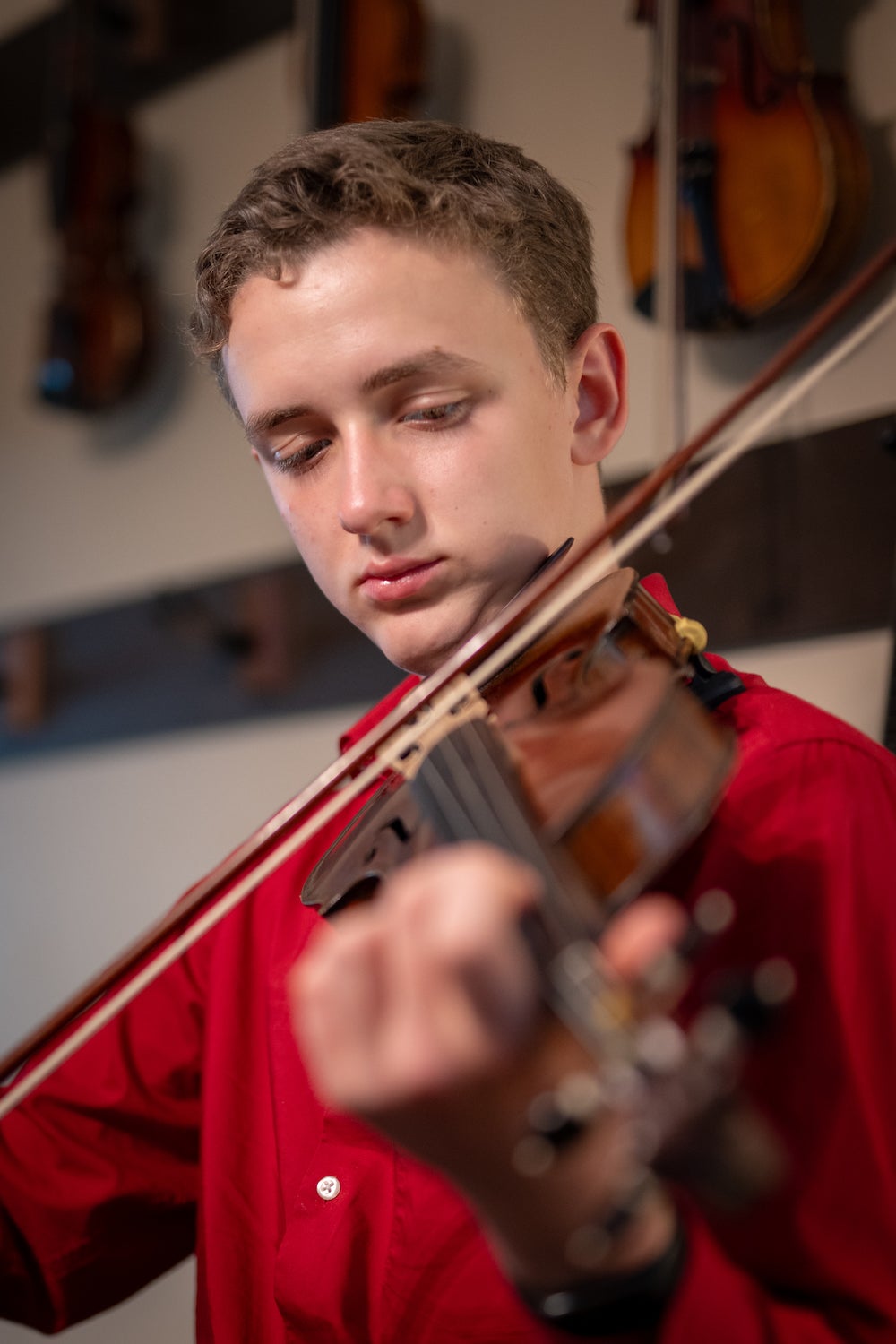
The Suzuki Method teaches that with the right combination of environment and hard work, everyone has the potential to succeed, not only in music but in all aspects of life. Perhaps if children everywhere were taught with this method, more and more would both believe in themselves and cultivate their talents, too.
Those interested in learning more about the SUZUKI Method or STEP Birmingham can visit the business’ website, stepbirmingham.com.

